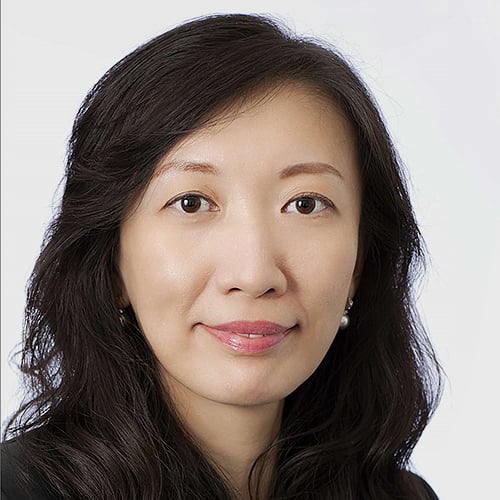German Economy Minister Peter Altmaier met with Huawei founder and CEO Ren Zhengfei when he led a delegation to China last week.
Altmaier, who heads up the Federal Ministry for Economic Affairs and Industry, was in China from June 18 to 21, accompanied by members of the German Bundestag (Parliament) and a high-level business delegation. According to the Economic Affairs Ministry, the visit to Beijing focused on political discussions, including with Trade Minister Zhong Shan; the Chairman of the National Development and Reform Commission (NDRC), He Lifeng; and the Minister for Industry and Information Technology, Miao Wei.
The delegation's itinerary in Shanghai also included visits to companies, a roundtable session with German firms in China, and a discussion on the social market economy at Tongji University. According to German media, the meeting with Ren was added at Huawei's request. The company is hoping to participate in the expansion of the German 5G network, something strongly opposed by the US on security grounds.
Altmaier said after the meeting with Ren in Shanghai that, in a market economy, all companies must be able to rely on being treated according to the law, and warned against making “arbitrary decisions”.
However, he added that “I made it very clear that telecommunication security is of high importance, that we expect all operators to fulfill our security requirements and that it is now Huawei's duty to show us that they are able to do so.”
In a discussion with students at Tongji University in Shanghai, he added that it was a “very objective discussion” that served the exchange of information, but stressed that only companies with the appropriate security certificates would be able to participate in Germany’s 5G infrastructure.
This wording has left it unclear whether Germany is going to give in to pressure from the Trump Administration, and block Huawei, having thus far leaned in favour of letting Huawei participate. German telecoms companies have previously said that excluding an important player such as Huawei would delay the rollout of the 5G network.
As his visit got underway, Altmaier called for progress between China and the European Union on a new trade and investment framework.
“China and the European Union are both partners and competitors," he said. "We wish to continue and deepen the good economic relations. China is Germany’s largest trading partner, and the political relations between our two countries are also very intensive. Of course, we also stand up for our interests. We need a level playing field for business, without discrimination and disadvantages. We are calling for further progress on the EU-China Investment Agreement, a key project in this field. Overall, we need a strategic dialogue about the future shape of our trade links with China. Another of the most pressing tasks for the new European Commission will be to draw up a European industrial strategy and to present our European industrial policy interests.”
Altmaier has been pressing hard for a German and EU industrial strategy to improve global competitiveness, and in February he unveiled his National Industrial Strategy 2030. He advocates a more active stance on industrial policy in global competition. And in some cases, temporary participation from the state in companies is possible.
But this has generated some opposition from within German industry.
In an interview with the German Press Agency (dpa) in mid-June, the chairman of the influential German Council of Economic Experts, Christoph Schmidt, harshly criticized Altmaier's industrial strategy. Schmidt is president of the RWI Leibniz Institute for Economic Research.
"It would be ill-advised to succumb to the illusion that entire national economies can be centrally controlled from above, as if they were large, hierarchically organized companies," he said, noting that this approach is close to the Trump approach to international economic policy.
Altmaier's concern is that Germany and the EU are in danger of being left behind in important areas such as AI, self driving cars and car battery cell production. He believes it is necessary to help create so-called national and European champions.
On the subject of China's growing economic power, Schmidt said that “we should accept competition with China, but remember our own strengths. There are many willing players. We have many hidden champions, especially in medium-sized companies, who manufacture high-quality products and are therefore extremely successful.”
He added that striving to always be better is still the right way to go, while at the same time it is essential to insist on mutual market opening with China at a political level.
In 2018, China was once again Germany’s largest trading partner. Bilateral trade volume rose from €186.6 billion (US$212.8 billion) in 2017 to €199.3 billion in 2018. China continues to be the most important market for German exports in the Asia-Pacific, which increased by 8.1% to €93.1 billion in 2018.
Cars are one of the most important German export segments, and the EU is currently working to build up its own battery production capability as the industry gradually switches over to e-autos.
During his visit, Altmaier visited the BMW Development Center for Autonomous Driving in Shanghai.
Negotiations on a China-EU bilateral investment treaty (BIT) continue to move forward, though at a slow pace since 2019 will see a new EU Parliament, Commission and EU Council President. These positions are currently the subject of horse trading between EU member states with tensions visible between France and Germany as to how they are allotted.
Talks on the BIT, which cover market access and investment protection, started in 2013. China and the EU said after meetings in April that negotiations on the BIT should achieve decisive progress in the course of 2019, hopefully leading to the conclusion of a high-level agreement in 2020.









